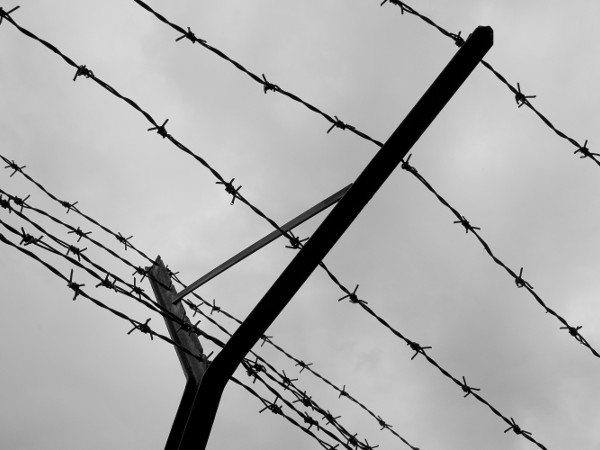Porn, Prisons, Wi-Fi and Science Education
 MARKET HARBOROUGH, England – For a correctional facility that is arguably best known for an escape in which two inmates were lifted by helicopter from its exercise yard, HM Prison Gartree currently finds itself combating what seems like a far less dramatic form of security penetration.
MARKET HARBOROUGH, England – For a correctional facility that is arguably best known for an escape in which two inmates were lifted by helicopter from its exercise yard, HM Prison Gartree currently finds itself combating what seems like a far less dramatic form of security penetration.
Thirty years after the very unscheduled helicopter flight by inmates John Kendall and Sydney Draper, Gartree officials are now worried about surreptitious Wi-Fi use by inmates, who reportedly are using hotspots from nearby homes to surf the web illicitly.
Odder still, rather than taking measures of their own to block the inmates’ mobile use, Gartree officials are asking residents in the area to password-protect or turn off their Wi-Fi to keep the inmates from making unauthorized use of the web.
“They said inmates were using residents’ internet connections and asked us to get our security checked,” said Mary Dilks, a senior citizen whose property abuts the jail. “But I’m not happy. It should be the prison who sorts out any problem, not us. The real problem is that prisoners shouldn’t have mobile phones in the first place.”
Another nearby resident, Peter Jackson (not that Peter Jackson), raised the issue of what inmates are using the Wi-Fi to do, quickly landing on the most likely application.
“I think people would be disgusted their internet was being used by criminals, especially if it’s to view porn,” Jackson said. “God knows what these people might be looking at.”
You know Pete, if I were you, I’d be more concerned about inmates cyber-looking over my shoulder as I logged into my bank account or entered my credit card digits as part of an online purchase than about the possibility of them jerking off. That’s just me, I suppose, oddly less concerned about strangers stealing my Wi-Fi signal to watch porn than using it to steal my fucking money.
Of course, if I lived next door to Gartree prison, my question for the warden would be something like, “Speaking of the internet, have you ever heard of a website called Google?”
Here’s the thing about Wi-Fi signals: They aren’t magic.
Blocking Wi-Fi signals isn’t rocket science. For that matter, it’s not even high school science.
Here’s a thought: Instead of asking neighborhood pensioners to secure their Wi-Fi — a request likely to draw blank stares from the folks who had their ISP (or grandchildren) set up their connections in the first place — why not pull up a chair and do the 30 seconds of research it would require to handle this issue without freaking out poor old Peter Jackson?
All I can say is I hope Her Majesty’s Secret Service is better at its job than is Her Majesty’s Prison Service (HMPS), the agency in charge of Gartree and other correctional facilities around the U.K.
Naturally, the Gartree Wi-Fi kerfuffle isn’t the first mobile hubbub for the HMPS, which has seen its share of embarrassing headlines concerning the ease with which inmates acquire and use banned mobile devices.
For all the talk of elaborate, high-tech smuggling of contraband using drones, it sounds like good old corruption is still an important part of how drugs, porn, mobile devices and other banned materials make their way inside the walls of HMPS prisons — and I’m sure the same can be said of American correctional facilities, as well.
“One prison officer bringing in one coffee jar full of Spice or cannabis can keep that jail going for a very long period of time and make an awful lot of money,” noted John Podmore, who spent 25 years with the HMPS, including time as the head of an anti-corruption task force. “There is a disproportionate effect by this small minority of staff, and that’s what needs to be understood.”
Yes, this does need to be understood … and while the HMPS is at the task of acquiring such an understanding, taking a few remedial science classes might not be a bad idea, either.
Image © Peter Gustafson.













